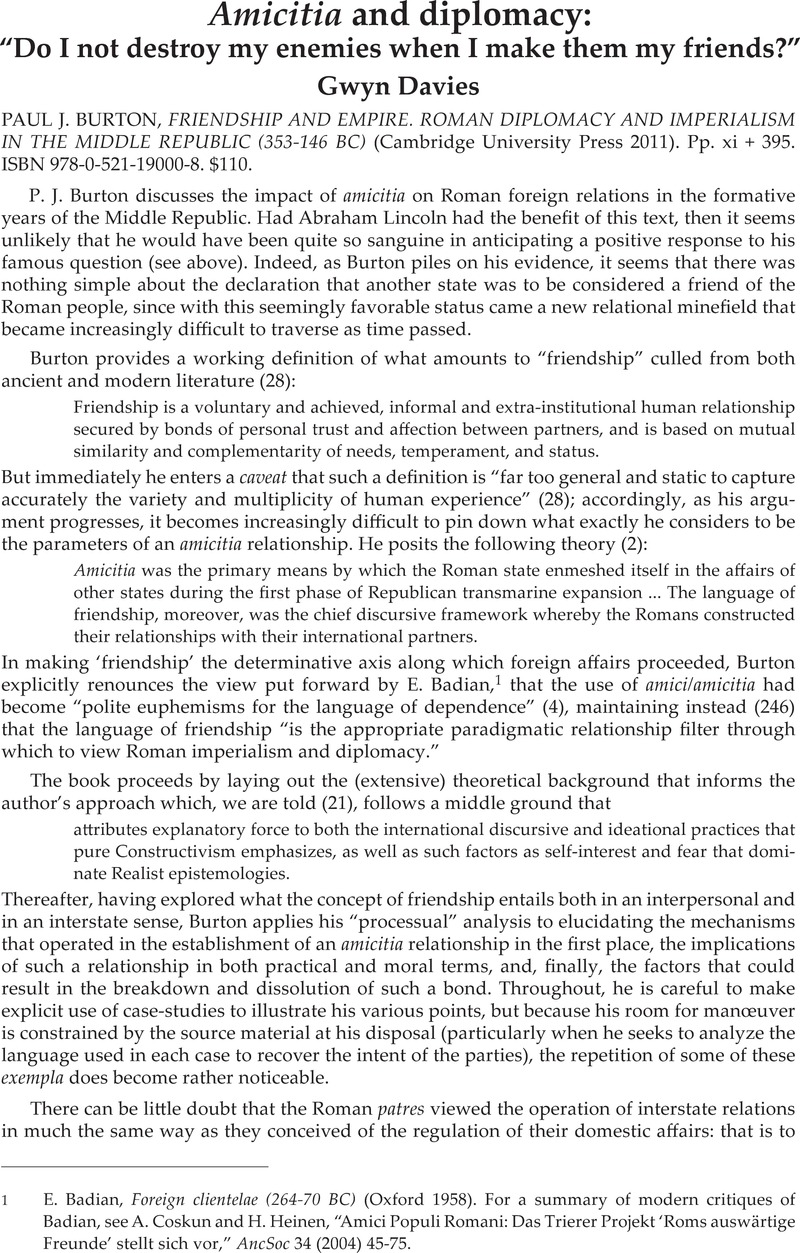No CrossRef data available.
Published online by Cambridge University Press: 27 November 2014

1 Badian, E., Foreign clientelae (264-70 BC) (Oxford 1958)Google Scholar. For a summary of modern critiques of Badian, see Coskun, A. and Heinen, H., “Amici Populi Romani: Das Trierer Projekt ‘Roms auswärtige Freunde’ stellt sich vor,” AncSoc 34 (2004) 45–75 Google Scholar.
2 Burton acknowledges the importance to his work of A. M. Eckstein's application of International Relations Realist theory to the Classical world, in particular Eckstein's Mediterranean anarchy, interstate war and the rise of Rome (Berkeley, CA 2006)Google Scholar, and Rome enters the Greek East: from anarchy to hierarchy in the Hellenistic Mediterranean, 230-170 BC (Malden, MA 2008)Google Scholar.
3 Burton first describes this formulation on 34 and proceeds to repeat it for much of the first half of the book.
4 It may be that the Campanians in the previous example formally ‘volunteered’ their surrender, but this was hardly the free behavior of men untrammeled by external circumstances. For “deditio after defeat”, see 142-58.
5 Yet there are very few typographical errors: Jakobsen for Yakobson (77) and Arcanania for Acarnania (92) are exceptions.